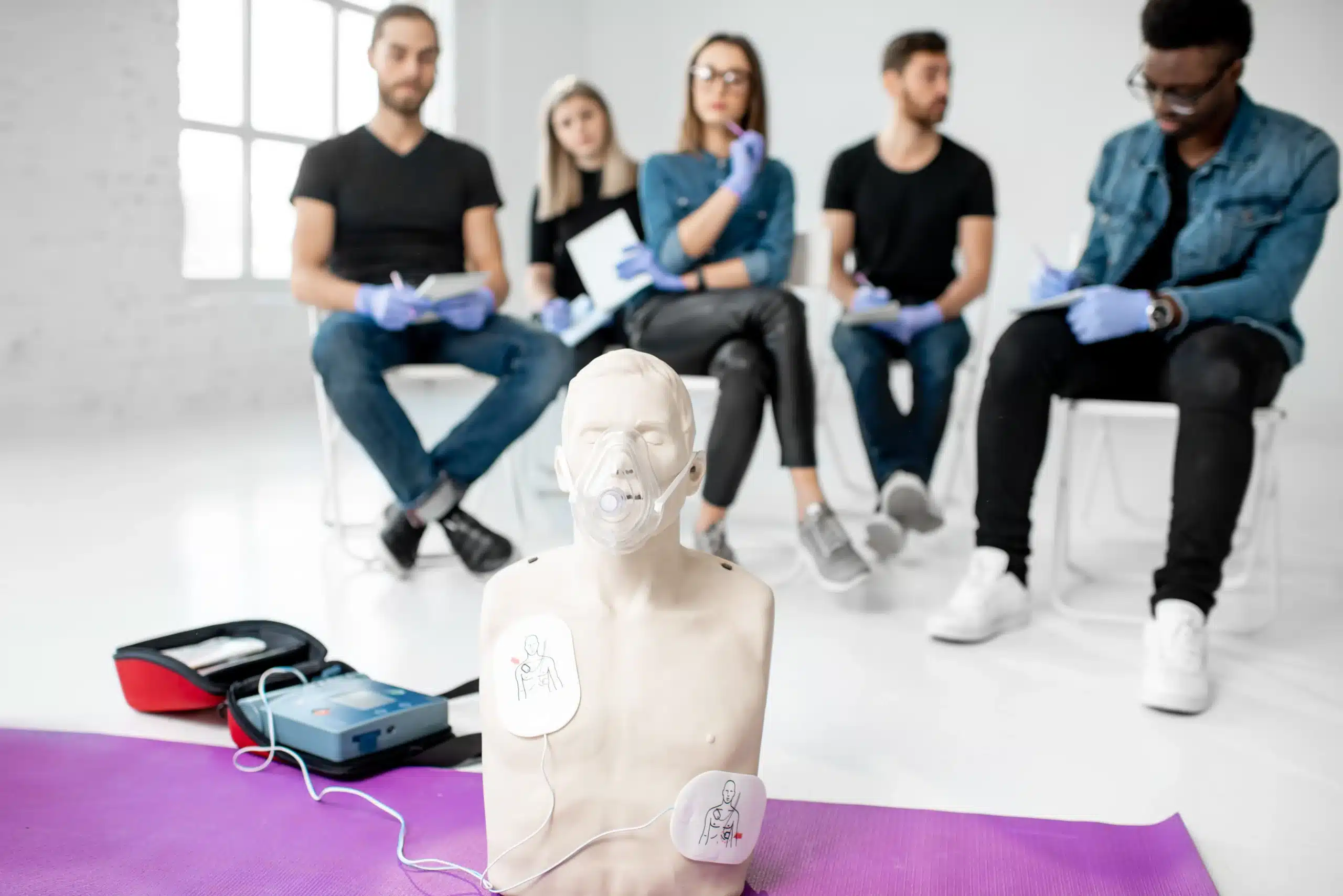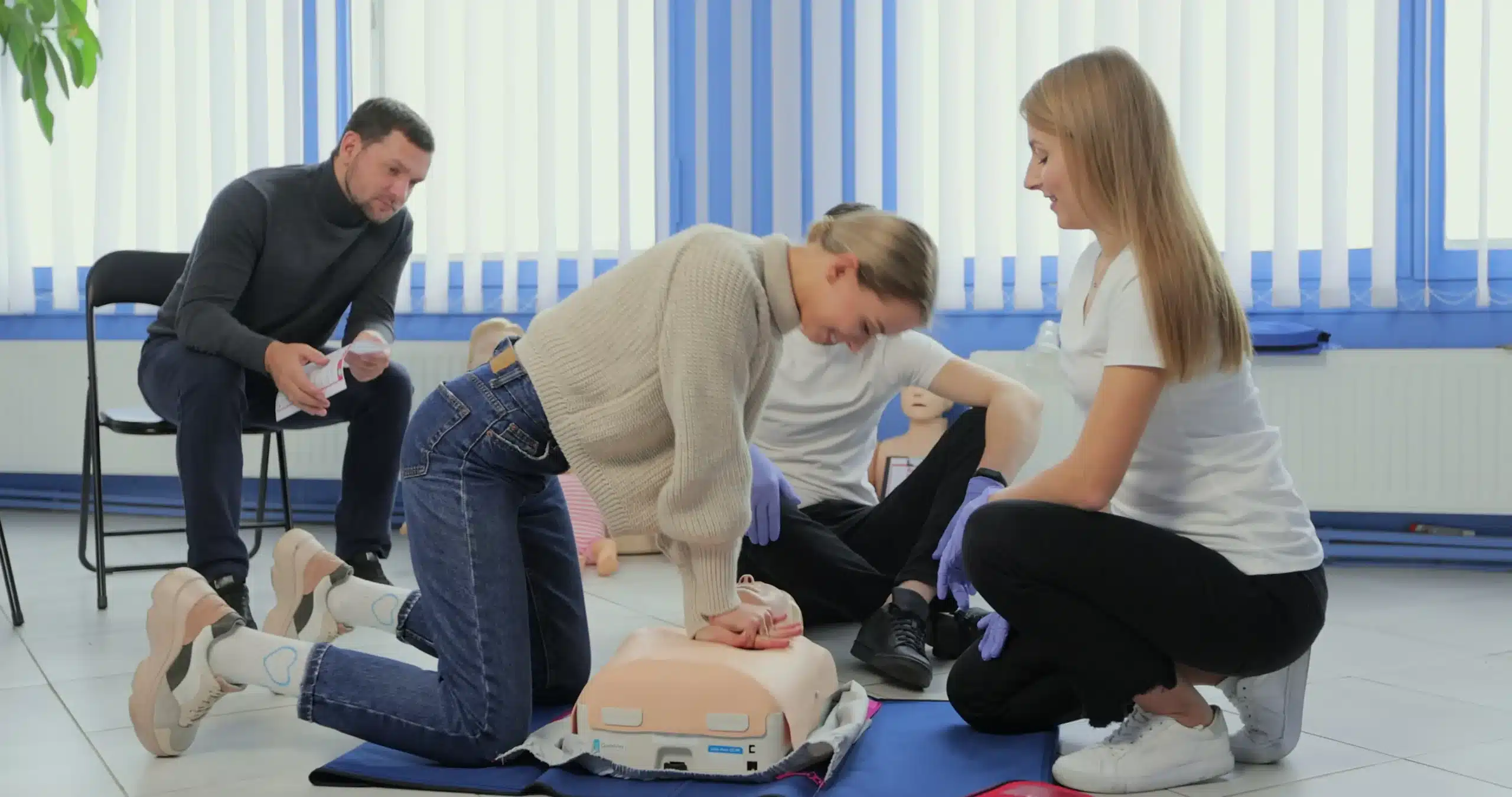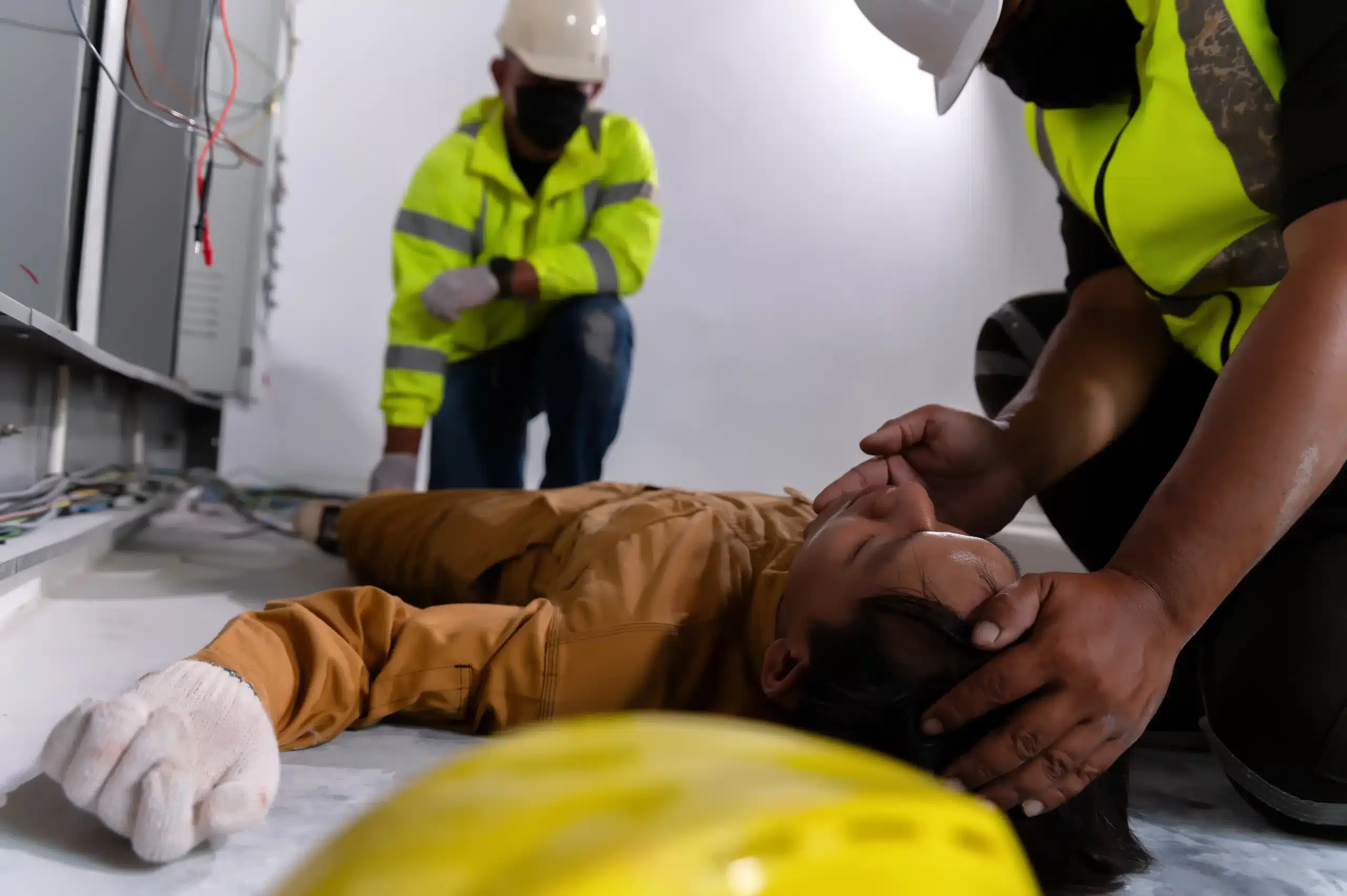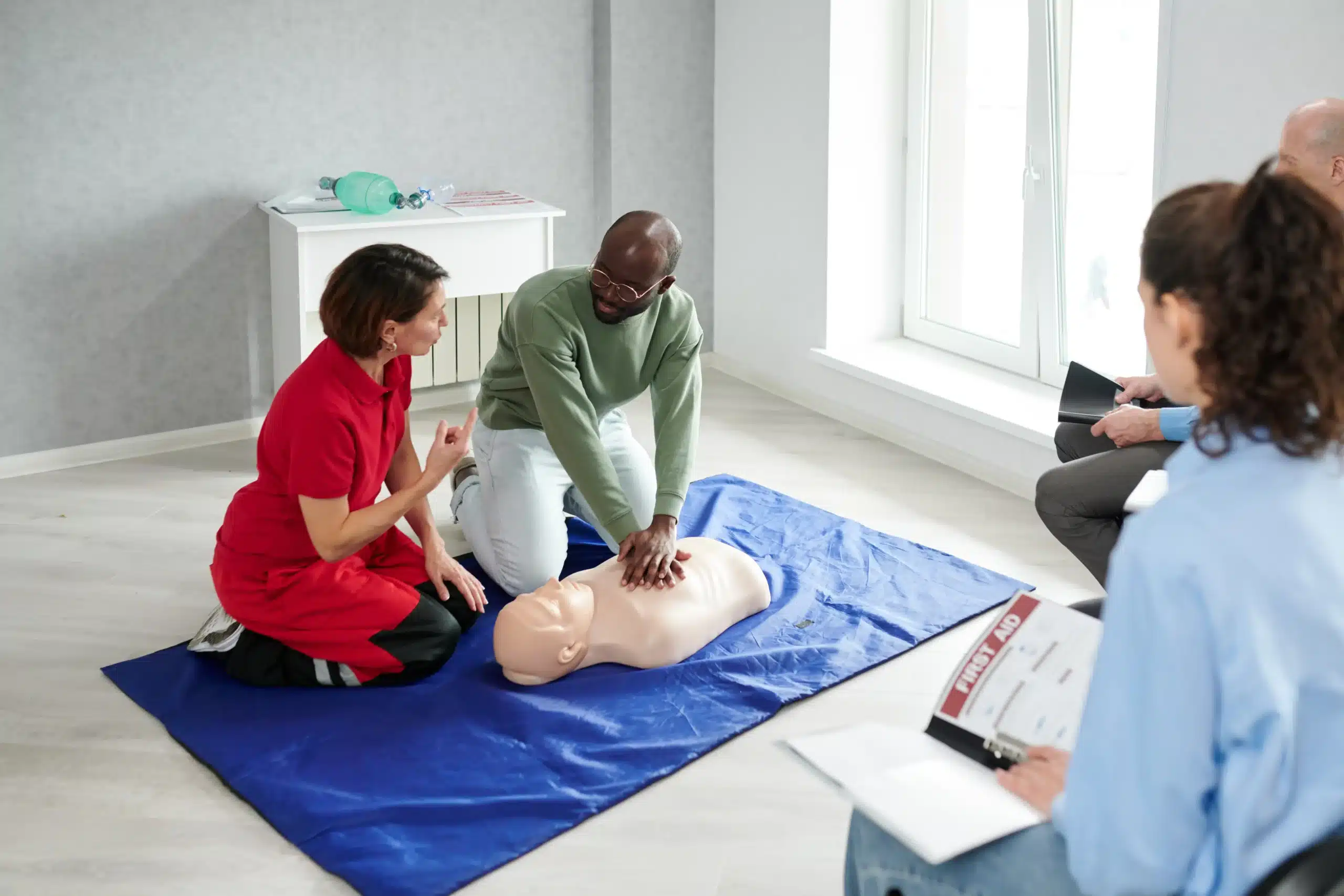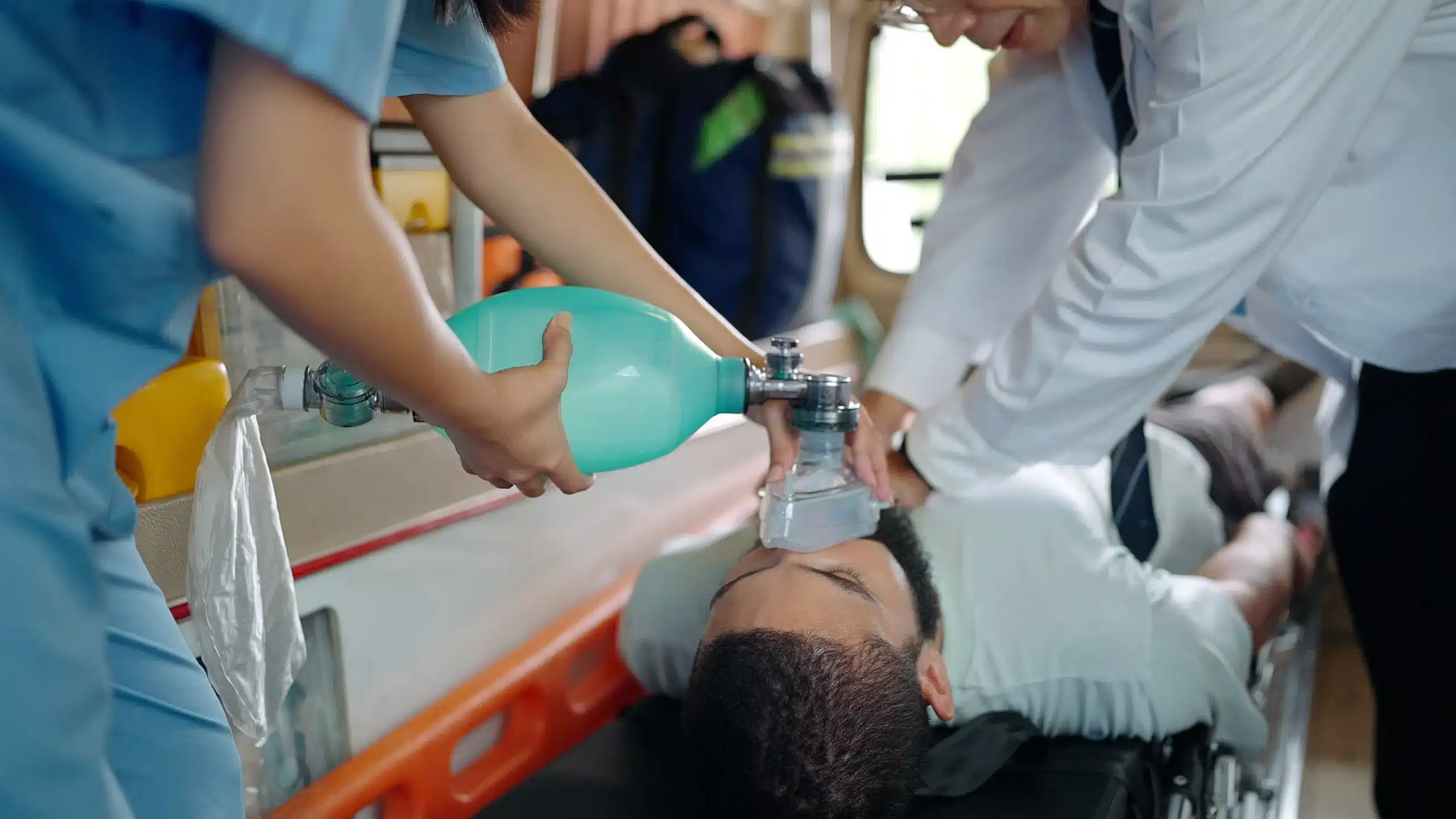Your BLS certification is about to expire—now what? Don’t panic! Renewing your Basic Life Support (BLS) certification is simpler than you might think, especially with the abundance of resources available. Finding a “BLS renewal near me” that fits your schedule and learning style is the first step. This guide walks you through the entire process, from understanding the requirements to choosing the right course format and provider. We’ll also cover the importance of staying current with AHA guidelines and offer tips for preparing for your renewal course.
Key Takeaways
- BLS is vital for healthcare professionals: Staying current with your BLS certification ensures you can confidently respond to emergencies and provide high-quality patient care. Regularly renewing keeps you aligned with the latest AHA guidelines.
- Choose your renewal course wisely: Think about your learning preferences and schedule when deciding on an online, in-person, or blended learning format. Prioritize AHA-certified providers with a solid reputation and competitive pricing.
- Preparation and ongoing practice are essential: Refresh your BLS knowledge before your renewal course and continue practicing your skills afterward. Staying proficient ensures you’re always ready to use your life-saving skills effectively.
What is BLS & Why Renew?
Basic Life Support (BLS) is a crucial certification for healthcare providers like doctors, nurses, EMTs, and other first responders. It covers core skills such as CPR and techniques for handling cardiac arrest, respiratory distress, and airway obstructions. BLS training gives you the tools to respond effectively in emergencies, providing vital care until more advanced medical help arrives. It’s the foundation of any healthcare professional’s skillset. The Red Cross offers more information on the difference between BLS and CPR certification.
Why renew your BLS certification? It’s typically valid for two years, with no grace period after expiration. This means taking a refresher course and passing an exam to stay current. Regular renewal keeps you up-to-date with the latest American Heart Association (AHA) guidelines, which are essential for providing safe and effective patient care. Plus, maintaining your BLS certification is often a job requirement in healthcare, so it’s key for career advancement and compliance with workplace standards.
Find the Best BLS Renewal Course Near You
So, you’re ready to renew your BLS certification—great! Finding the right course boils down to three things: your learning style, the provider’s reputation, and the overall cost. Let’s break down each of these to help you find the perfect fit.
Online vs. In-Person
First, think about how you learn best. Do you thrive in a traditional classroom or prefer the flexibility of online learning? Both options have their perks. Online courses offer convenience and often self-paced modules, perfect for busy schedules. In-person classes provide hands-on practice and direct interaction with an instructor. Consider what works best for you and choose accordingly. No matter your preference, ensure the provider offers American Heart Association certification, the gold standard in BLS training. Also, compare pricing; look out for extra fees and ask about group discounts. These can significantly lower the cost per person.
Top Local Providers
Finding a BLS renewal course shouldn’t be a scavenger hunt. Several reputable organizations offer convenient options, often with various schedules and locations. Here are a few places to start your search:
Safety Training Seminars
Safety Training Seminars offers a range of AHA-certified courses, including BLS, in Oakland and over 60 other cities. They’re known for excellent customer service, competitive pricing, and the fast RQI certification program. Serving Alameda, Oakland, and Berkeley, CA, they are a convenient option for those in the East Bay area. Check their low price guarantee.
American Red Cross
The American Red Cross is another well-known provider of BLS certification courses. They offer classes nationwide, making them a readily accessible option. Their courses meet the needs of healthcare providers and other professionals requiring BLS certification.
American Heart Association
While the AHA doesn’t directly conduct courses, they set the standards for BLS training. Look for providers offering AHA-certified BLS in your area. Many organizations, including Safety Training Seminars, offer these courses, which typically involve an online component and an in-person skills assessment.
Local Hospitals & Medical Centers
Many hospitals and medical centers offer BLS renewal courses for their staff and the community. These courses are often taught by experienced healthcare professionals and provide a practical, real-world perspective. Check with your local hospitals or search online for courses near you.
Community Colleges
Community colleges frequently offer BLS certification and renewal courses, often at competitive prices. They can be a great resource for those looking for a more structured learning environment. Contact your local community college for more information.
How BLS Renewal Works
So, you’re ready to renew your BLS certification—smart move! Keeping your skills and certification up-to-date is essential for providing the best possible care. This section breaks down the renewal process, from prerequisites to celebrating your updated credentials.
Prerequisites & Requirements
Before signing up for a renewal course, double-check your current BLS certification status. Most providers, including the American Red Cross, require your existing certification to be valid or to have expired within the past 30 days. This ensures you’re building on a solid foundation. If your certification has been expired for longer, you’ll likely need to take the full BLS course instead of a renewal.
Course Content
BLS renewal courses are streamlined versions of the initial certification, focusing on key skills and updates. They’re designed for healthcare professionals who need to maintain their life-saving techniques. Expect a comprehensive review of essential procedures, including adult, child, and infant CPR, two-rescuer CPR, and choking rescue techniques. Some courses, like those offered by Rocky Mountain CPR, also cover team CPR, an important aspect of emergency response.
Assessment & Certification
The renewal process itself is straightforward. First, choose a course format—online or in-person—that works for you. After completing the coursework, you’ll take an exam to demonstrate your understanding and skills. Once you pass, you’ll receive your updated BLS certification card, typically valid for two years. Save A Life CPR offers a helpful step-by-step guide. Remember, maintaining your BLS certification is an ongoing commitment, so mark your calendar for your next renewal! The Red Cross provides further information on certification validity.
Cost & Value
Getting your BLS certification or recertification is an investment in your skills and career. Understanding the costs and finding the best value is key to making a smart choice.
Typical Prices
BLS renewal course prices vary based on location, course format (online vs. in-person), and the training provider. Expect to see prices ranging from $70 to $120 for a comprehensive BLS renewal course that includes online coursework, skills testing, and your certification card. For example, providers like Tracy CPR Classes offer BLS renewal for $120, covering all the essentials.
Factors Affecting Cost
Several factors influence the overall cost of BLS renewal. Consider these points when comparing providers:
- Instructor expertise: Highly experienced instructors often charge more. Look for a balance of experience and affordability.
- Course materials: Some courses include printed or online resources in the price, while others may have additional fees.
- Location: Courses in major cities might be pricier due to higher operating costs.
- Class size: Smaller classes often cost more because of the increased individual attention.
- Course format: Blended learning—online coursework combined with in-person skills testing—can be more affordable than traditional classroom courses. It’s important to consider factors like a provider’s reputation and the quality of instruction, as highlighted by Kahawatungu.
Discounts & Special Offers
Many training centers offer discounts and promotions, making BLS renewal more budget-friendly. Always ask about potential savings.
Group & Corporate Discounts
If you’re with a group or organization needing BLS renewal, ask about group discounts. Many providers offer reduced rates for multiple participants, making training your whole team more efficient. Safety Training Seminars offers these valuable group discounts.
Early Registration Benefits
Some providers offer early registration discounts. This is a smart way to save if you can plan.
Professional Association Partnerships
Check if your professional association has partnered with any BLS training providers. Members may receive discounted rates or special access to courses.
Safety Training Seminars’ Low Price Guarantee
Safety Training Seminars provides high-quality BLS training at competitive prices. Our low-price guarantee ensures you’re getting excellent value. We believe cost shouldn’t prevent anyone from learning these essential skills.
Choose the Right BLS Renewal Course
Picking the right BLS renewal course isn’t just about checking a box; it’s about making sure you’re truly prepared when your skills are needed. Here’s what to consider:
Course Formats & Schedules
Think about how you learn best and how much time you have. In-person classes offer hands-on practice and direct interaction with an instructor. Online courses provide flexibility, letting you learn at your own pace and often fitting around busy schedules. Blended learning combines online coursework with in-person skills sessions. Consider what format works best for your lifestyle and learning style. Also, check the course schedule. Some providers offer weekend or evening classes.
Instructor Qualifications
A skilled instructor can make all the difference. Look for courses led by experienced professionals with a strong background in emergency medical care. Reputable providers often highlight their instructors’ credentials and may even offer additional training opportunities beyond basic BLS.
Accreditation & Reputation
Accreditation matters. It ensures your BLS certification meets industry standards and is widely recognized. Prioritize providers offering American Heart Association (AHA)-certified courses, like those from Safety Training Seminars. The AHA is a highly respected organization, and their certification carries weight. Other reputable organizations, such as the American Red Cross and local institutions, also offer BLS renewal options. Do your research and choose a provider with a solid reputation.
Prepare for Your BLS Renewal
Getting ready for your BLS renewal doesn’t have to be stressful. With a little preparation, you can walk into your renewal course feeling confident and ready to learn. Here’s how to get started:
Refresh Your Knowledge
One of the biggest hurdles people face when renewing their BLS certification is keeping up with the latest guidelines and procedures. Things change, and it’s important to be aware of those changes before you take your renewal course. Take some time to review your BLS provider handbook and familiarize yourself with any updates. The American Heart Association website offers the most current information on BLS guidelines. A quick refresher will make the renewal process much smoother. After all, BLS training courses require participants to renew their certifications regularly, so staying on top of updates is key.
What to Expect
The BLS renewal process typically involves completing a course and passing an exam, much like your initial certification. However, each certifying organization has specific requirements for BLS renewal courses, including the course duration, curriculum, and amount of hands-on practice. Check with your chosen provider, like Safety Training Seminars, to understand their specific requirements. Knowing what to expect ahead of time will help you feel more prepared for your renewal course.
Stay Sharp Post-Renewal
Even after you’ve renewed your BLS certification, staying up-to-date is crucial. Regularly practicing your skills, attending refresher courses, and keeping your documentation current are all essential for maintaining your competence. Healthcare professionals who regularly renew their BLS certifications and keep their skills sharp have a greater impact during emergencies. Remember, BLS is a life-saving skill, and staying proficient benefits both you and those you may need to assist. You can find helpful resources and tips for avoiding common errors when renewing your BLS certification.
BLS Renewal FAQs
Got questions about BLS renewal? You’re not alone. Here are answers to some common questions:
How often do I need to renew my BLS certification?
AHA BLS certification is valid for two years. You can renew up to 30 days after it expires, but it’s always best to plan ahead and renew your BLS certification before the deadline.
What are some common mistakes to avoid during BLS renewal?
It’s easy to let your certification lapse, so set a reminder. Other common mistakes include neglecting continuing education requirements and providing inaccurate information on your renewal application. Double-check everything before you submit!
What’s the difference between BLS and CPR certification?
While both involve CPR, BLS certification is more comprehensive. It’s designed for healthcare professionals and first responders, covering CPR plus additional techniques for managing cardiac arrest, respiratory distress, and obstructed airways. Learn more about BLS certification and how it differs from CPR training for the general public.
What should I look for in a BLS renewal course?
A good BLS renewal course should cover the latest AHA guidelines and provide ample hands-on practice. Check the provider’s reputation, instructor qualifications, and the overall value of the course. Be sure to check out Safety Training Seminars’ Low Price Guarantee.
What are my options for renewing my BLS certification?
You have several options for BLS renewal, including in-person classes, online courses, and blended learning (a mix of online and in-person). Choose the format that best fits your learning style and schedule. Safety Training Seminars offers a variety of course formats to meet your needs.
Related Articles
- BLS Renewal in Alameda: Your Easy Guide – Oakland CPR Classes
- BLS Renewal in Berkeley: Your Go-To Guide – Oakland CPR Classes
- BLS Renewal Oakland: Your Easy Guide to Recertification – Oakland CPR Classes
- Online BLS Classes in Oakland: Your Complete Guide – Oakland CPR Classes
- BLS Certification Alameda: The Ultimate Guide – Oakland CPR Classes
Frequently Asked Questions
How often do I need to renew my BLS certification?
BLS certification is typically valid for two years. It’s best to renew before the expiration date to avoid any lapse in your credentials. Some providers allow a short grace period, but it’s always a good idea to plan.
What if my BLS certification has already expired?
If your certification has recently expired (within the past 30 days, in many cases), you can usually still take a renewal course. However, if it’s been expired for longer, you’ll likely need to take the full BLS course again rather than a shorter renewal course. Check with your chosen training provider for their specific policy.
What’s the difference between BLS and CPR certification?
BLS (Basic Life Support) is geared towards healthcare providers and other professionals who need a broader skillset than standard CPR. BLS includes CPR but also covers more advanced techniques for airway management and other life-saving procedures. CPR certification, on the other hand, focuses primarily on CPR for adults, children, and infants.
What’s the typical cost of BLS renewal, and are there ways to save?
BLS renewal courses typically range from $70 to $120, depending on the provider, location, and course format. Look for potential discounts, such as group rates or early bird specials. Some employers may also cover the cost of BLS renewal for their employees.
How can I find a reputable BLS renewal provider near me?
Start by checking with established organizations like the American Red Cross, the American Heart Association (for certified training centers), and local hospitals or community colleges. Also, look for providers with positive reviews, experienced instructors, and convenient course schedules and formats. Make sure they offer AHA-certified courses, which are widely recognized and respected.


